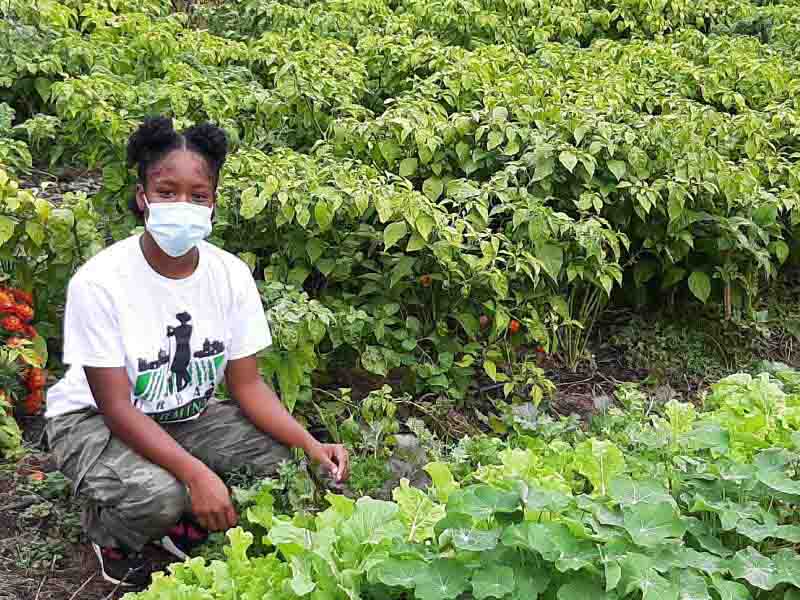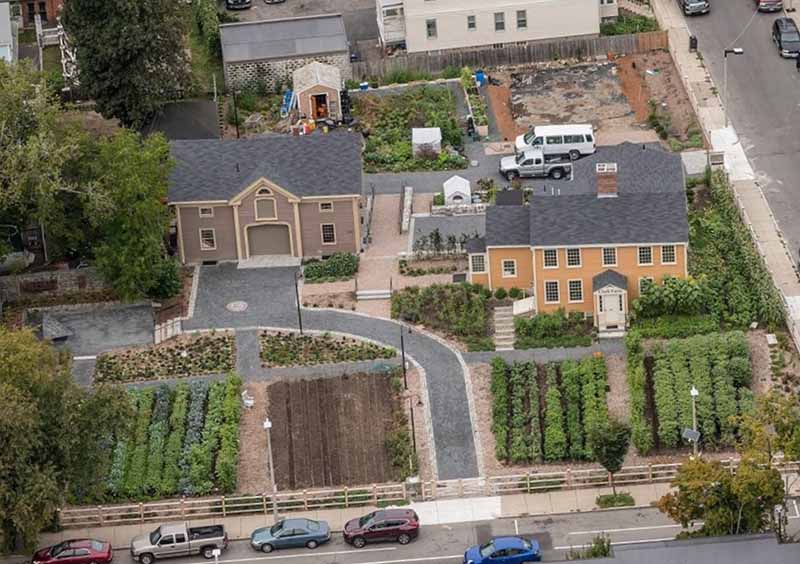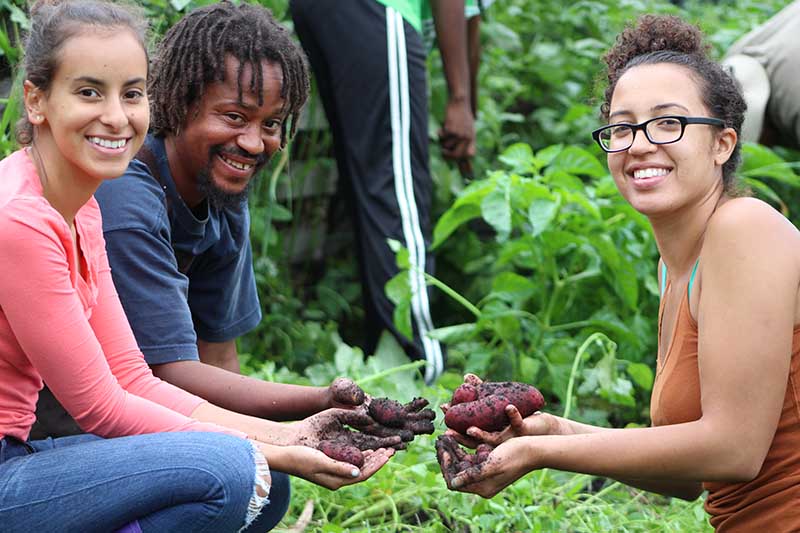Farming program delivers agricultural know-how and nutrition
By Diane Daniel, American Heart Association News

When Pat Spence was growing up in Boston, she and her brother would ride their bikes past a dilapidated home nearly overtaken by vines, weeds and trees in the Mattapan neighborhood. What they called "the creepy house" is now the stately headquarters of the Urban Farming Institute. Spence has been its executive director since 2014.
UFI operates an urban farm, residence, educational center and weekly farm stand. It also oversees six other small-lot farms in Mattapan, Dorchester and Roxbury, neighborhoods with mostly Black and Latino residents and where the rate of hospitalizations for heart disease is significantly higher than the rest of Boston. The institute's mission is to advance commercial urban farming locally through education and land development, as well as to provide the community with healthy options.
"We have to make sure we get food to the people who need it, and to teach them how to grow food as well," Spence said.
From UFI's total of about 1.5 acres, it distributed 19,000 pounds of food last year, she said. Some produce is donated for free, but the majority is sold at the farm stand and to restaurants.
The farm, dating to the 18th century, sits on a 30,000-square-foot lot and is named Fowler Clark Epstein Farm for a succession of former owners. It reopened in 2018 after a $3.7 million restoration.

Community programs about farming and food production typically run throughout the year, but the coronavirus pandemic has altered their usual schedule. Its Young Farmers program is on hold, while a popular 10-week fitness and nutrition program called Fit Around the Farm for Seniors went virtual, allowing for more participants and guest speakers.
The farm grows a large selection of vegetables and herbs and attempts to cultivate vegetables that are appropriate to the neighborhood's various cultures, including African American and Latino communities. One popular offering is the leafy green callaloo, a staple in Jamaica, from where Spence's family originated.
"Now it's one of the biggest sellers in Mattapan," she said. "People will come to our farm stand just for that."
UFI plans to expand the stand into a weekly event called Fridays at the Farm, which would include other vendors and entertainment, but for now that is on hold during the COVID-19 pandemic. Meanwhile, the staff is making and selling front porch and backyard boxes to grow produce in, capitalizing on a renewed interest in gardening as people spend more time at home.
During the past few years, almost 750 volunteers have helped with farming and programs. Activities are funded by retail and wholesale sales as well as grants, including $150,000 from the American Heart Association's Social Impact Fund.
At the heart of the Urban Farming Institute is its nine-week Urban Farmer Training Program, where up to 25 students, mostly people of color, are introduced to small plot farming. Students learn plant health, crop planning, and the business of farming. From there, some are selected to continue with another 20 weeks of field training for hands-on experience.

Many farm workers or customers are former graduates, Spence said. One of them is Siedric White, whose jobs have included farm manager at a local brewery and head chef at a catering company. White, who had already been cooking in restaurants for a dozen years, took the farming course to inform his culinary skills and learn more about sustainability.
"It was one of the most important things I've done for myself," White said. "I have a lot more respect for what I do as a culinarian and of the work that the farmer does before I even get to do my job."
The farm's emphasis on minorities is especially important, he said.
"For black and brown people, there's understandably a kind of reluctance or stigma to engage in this line of work because of racial history," White said. "But I think it's really powerful for our communities to start engaging in farming again, even on a small scale."
There's also the added benefit, Spence said, of the positive feeling that working the land can bring. "To have your hands in dirt and growing something new all the time, it just makes you feel good."
If you have questions or comments about this story, please email [email protected].





